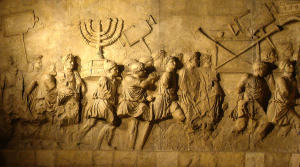All posts in this series are archived in the O’Neill-Fitzgerald Debate.
 Tim O’Neill (TO) writes some very true words that enable us to identify a “careful” and “honest” treatment of a work:
Tim O’Neill (TO) writes some very true words that enable us to identify a “careful” and “honest” treatment of a work:
What a careful, honest or even just competent treatment of the subject would do would be to deal with all relevant positions throughout the analysis . . . . (O’Neill, 2013)
So let’s see if TO himself has followed his own advice and given his readers a “careful, honest or even just competent treatment” of David Fitzgerald’s (DF) book.
Read TO’s second part of that above sentence:
but Fitzgerald does not even acknowledge this middle ground position – that of a historical Jesus who was not miraculous and does not conform closely to the Jesus of the gospels – even exists.
As we saw in our previous post DF does indeed not only “acknowledge this middle ground position” but he frames his book with it: the opening pages and closing chapter are dedicated specifically to it. The same position further appears throughout the body of the book. So TO does not simply fail or neglect to deal with the full argument of David Fitzgerald’s (DF) book, he ‘carelessly, dishonestly or even just incompetently’ tells readers the opposite of the truth about its contents. I am reminded of several James McGrath’s “reviews” of Earl Doherty’s Neither God Nor Man. If “mythicism” is such an incompetent and silly proposition why do people need to write brazen falsehoods in order to refute it?
But maybe we are being harsh and he was tired and distracted while reading the arguments in DF’s Nailed that he tells his readers are not there.
So let’s give him another chance.
Another of TO’s damning indictments begins:
Fitzgerald insists that there are elements in the story of Jesus which should have been noticed by historians of the time and insists that there is no shortage of writers then who should have recorded some mention of them . . . (O’Neill 2011)
He quite correctly quotes DF to support this:
There were plenty writers, both Roman and Jewish, who had great interest in and much to say about (Jesus’) region and its happenings …. We still have many of their writings today: volumes and volumes from scores of writers detailing humdrum events and lesser exploits of much more mundane figures in Roman Palestine, including several failed Messiahs. (Fitzgerald, p. 22)
DF did say that these other writers, both Roman and Jewish, did have enough interest in Palestine of the day to make mention of it in their writings — and he does say that their writings “included” mention of “several failed Messiahs”.
Manipulator or Debater?
TO then moves in to close the semantic trap. He accuses DF of saying that “scores of writers” wrote of failed Messiahs in Palestine: Continue reading “O’Neill-Fitzgerald: #5, Should We Expect Any Roman Records About Failed Messiahs?”
